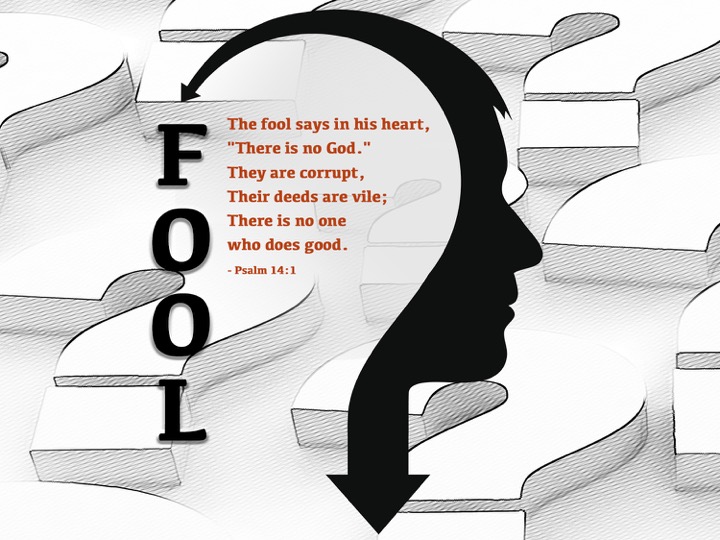-
The Two Ways Series
Contributed by Claude Alexander on May 11, 2021 (message contributor)
Summary: For men today there are only two ways, the way of sin and death, and the way of salvation.
The Two Ways
Proverbs 1:7-33
From Adam and Eve onward, the root of human tragedy lies in wrong choices. Man lost all because he chose to listen to the deceiver rather than to Him who is Truth. The book of Proverbs is all about helping us to make right choices, to choose the way of God and not that of the deceiver.
There are three types of people wisdom she cries out to:
• The Simple – a silly person, one who is easily persuaded
• The Scorners – mockers – one who mocks at God’s wisdom.
• The Fool – one who is stupid and arrogant.
In our culture, fools are often thought of as silly or ridiculous, and foolishness is described as a person who acts unwisely or imprudently; a silly person unaware that his behaviour is leading to trouble, annoyance, or offense. However, the biblical usage of the term fool is not primarily about someone who is silly Psalm 14:1 says, “The fool has said in his heart, ‘There is no God.’ Who then is a fool?
Fools willingly reject the Lord and hold God’s wisdom in contempt. They choose not to fear the Lord (Proverbs 1: 7, 29). They ignore the advice and refuse to walk in His wisdom, and do not follow His ways (Proverbs 1:30). Instead, fools rely on themselves. In trusting himself (Proverbs 28:26), the fool does not recognize that his own heart is desperately wicked (Jeremiah 17:9). It is no surprise, then, that fools are corrupt and their ways are vile (Psalm 14:1; 53:1). They enjoy wicked schemes (Proverbs 10:23), proclaim folly (Proverbs 12:23), mock at sin (Proverbs 14:9), and are deceitful (Proverbs 14:8). Fools despise the wisdom found in knowing the God of all wisdom (Proverbs 2:6–8).
In our Introduction to the Book of Proverbs we touched on the basics:
(1) What is a Proverb.
(2) Meaning of a Proverb
(3) Reason for the Book of Proverbs
And we will not be repeating these ideas here.
The specific goal of Proverbs is stated in verse 4: “to give prudence to the simple, knowledge and discretion to the youth.”
The “simpleton” in Proverbs is not a “stupid” person in an intellectual sense. The simple person is one who is uncommitted, unaware, undiscerning, and so easily led or misled.
Notice the phrases: “to give prudence to the simple, knowledge and discretion to the youth” . We all know the proverb in Proverbs 22:15: “foolishness is bound in heart of a child.” We’re all born with a bent to being self-independent . Solomon recognizes that, and so he wants very much to impart wisdom to his son before he ruins his life. What Solomon wants for his son is to see him mature and develop the ability to make well-considered decisions, and not be driven by thoughtless foolish impulses.
So Proverbs begins by offering this attractive prospect: “I can teach you how to live so that you don’t have to learn from mistakes and regrets. Do you want to make a mess of your life? Or do you want to live successfully, without regrets? Listen –it’s for your own good.”
To impart this wisdom, beginning in 1:8 and all the way through the end of chapter 9 Solomon gives these extended lectures, exhorting his son to pursue wisdom. And then from chapter 10 onwards he gives us specific proverbs – wisdom in specific life-applications.
But before he gets to any of that, he gives us the whole in verse 7 is the basic creed of the book: “The fear of the LORD is the beginning of knowledge; fools despise wisdom and instruction.”
This is his theme. “The fear of the LORD is the beginning of knowledge.” If you want to live successfully, you must fear God
Now then, what does it mean to “fear” the Lord? You are no doubt aware that this is often translated “reverence” or “awe.” These ideas are certainly involved.
As someone has said, this fear of God, for the believer, is not the kind of fear that makes you run away, but it is the kind of fear that makes you bow. It overwhelms and humbles us.
In verses 1:8-19 Solomon warns his son about the danger of bad company. The young must resist the enticements of these men.
Significantly, this first instruction and warning in the book of Proverbs speaks to the company we keep and the friendships we make.. It has been said, "show me your friends and I can see your future." It speaks to the great need for God’s people to be more careful and wiser in their choice of friends.
Verses 10-14 begin with a warning and then describe a potential temptation; then verses 15-19 begin with a warning and give the reason for the warning.

 Sermon Central
Sermon Central



